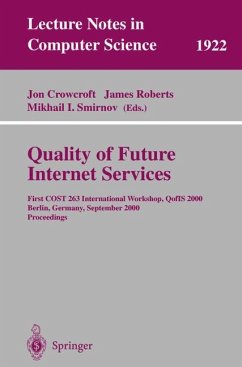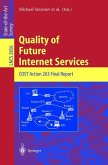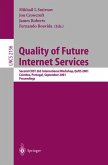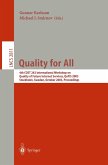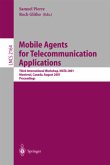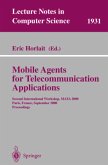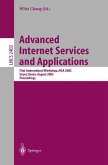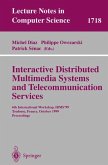The papers in this book present various viewpoints on the design and - plementation of techniques for QoS engineering for Internet services.They were selected from more than 70 submissions to the 1st International workshop on "Quality of future Internet services" (QofIS) organized by COST Action 263. The main focus of the papers is on the creation, con?guration and deployment of end-to-end services over a QoS assured Internet using the IntServ (Integrated Services) and Di?Serv (Di?erentiated Services) models. The main technical p- gramme was completed by two keynote talks: IETF Chair Fred Baker opened the workshop with a discussion on major Internet development directions and Andrew M. Odlyzko of AT&T Labs Research gave the closing talk on Internet charging issues. The presentation of papers was organised in 9 sessions. The emphasis of Session 1 is on an assessment of the essential building blocks for a QoS assured Internet, i.e., queueing and scheduling, which basically de?nes the space for end-to-end services. The papers of this session discuss the bounds we may expect from these building blocks, the issues of queueing and scheduling management, and the parameters we need to tune in a dynamic implementation. Flow control and congestion control cannot be considered without regard to the dominating impact of TCP. The keyword of Session 2 is, therefore, Intern- friendly adaptation. Four papers in this session are complementary and together present an emerging understanding of a basic optimal area for such adaptation.
Hinweis: Dieser Artikel kann nur an eine deutsche Lieferadresse ausgeliefert werden.
Hinweis: Dieser Artikel kann nur an eine deutsche Lieferadresse ausgeliefert werden.

